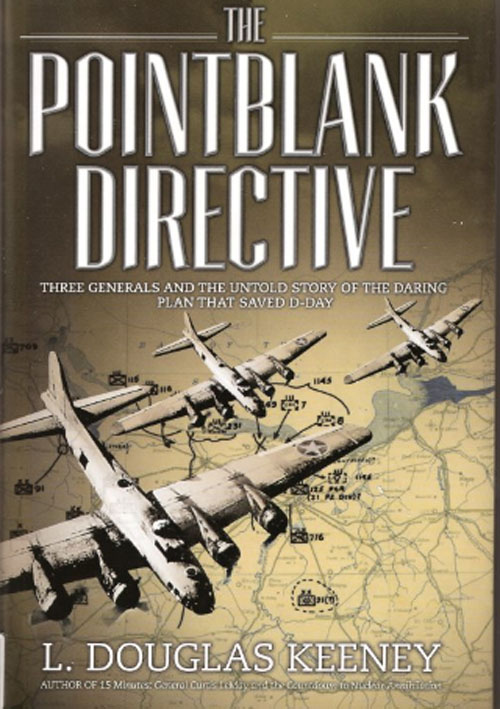The Point Blank Directive
Review

The Point Blank Directive, L. Douglas Keeney, Osprey Publishing, 2012, 272 p, £20.00. ISBN: 978-1-84908-933-3
This book is about the air war over Germany from 1943 and the complicated preparations for D Day in June 1944. For many months, the Allied air attacks on Germany were the only way of bringing the war home to the Nazis, in the hope of crippling their war efforts and paving the way to victory. This offensive was controversial, as it inevitably brought high numbers of civilian casualties and serious losses of aircrew. If the D Day landings were to succeed, the Allies had to destroy German air power in order to get the soldiers ashore and off the beaches. The aim of ‘Point Blank' was specifically to bomb German aircraft production out of the war, as well as destroying its planes, no matter what the human cost. The author concentrates on the Americans, who had the largest contribution in planes and usually chose to raid in daylight, whereas the British used night attacks on large German cities in order to weaken German morale. The book pays due tribute to the airmen, without whose efforts and sacrifice, D Day would have failed and we would not be enjoying the freedoms we have today. Keeney emphasises the detailed planning of the American air commander, Carl Spaatz and his ruthless determination to succeed. The book reveals the perils faced by the airmen over Germany, showing the great dangers posed by the Luftwaffe fighter defence, as well as heavy anti-aircraft fire. Even if they survived the raid, there were many dangers on the return flight, not least the fear of crashing on the home airfield, when in sight of safety. As D Day approached, aerial bombardment cut off the Normandy area, but also, Spaatz attacked other parts of northern France to keep up the deception that the invasion would be in the Calais area, which tied up vital German reinforcements. On D Day itself, there was little German air activity, showing that ‘Point Blank' had achieved its aim. The air war has been a controversial aspect of World War II. Its success has not had the coverage it deserved and Spaatz was a modest, reserved man, who did not produce a later book of memoirs, unlike other commanders. As a historian who knew little about this campaign, I found this book fascinating and can thoroughly recommend it.

